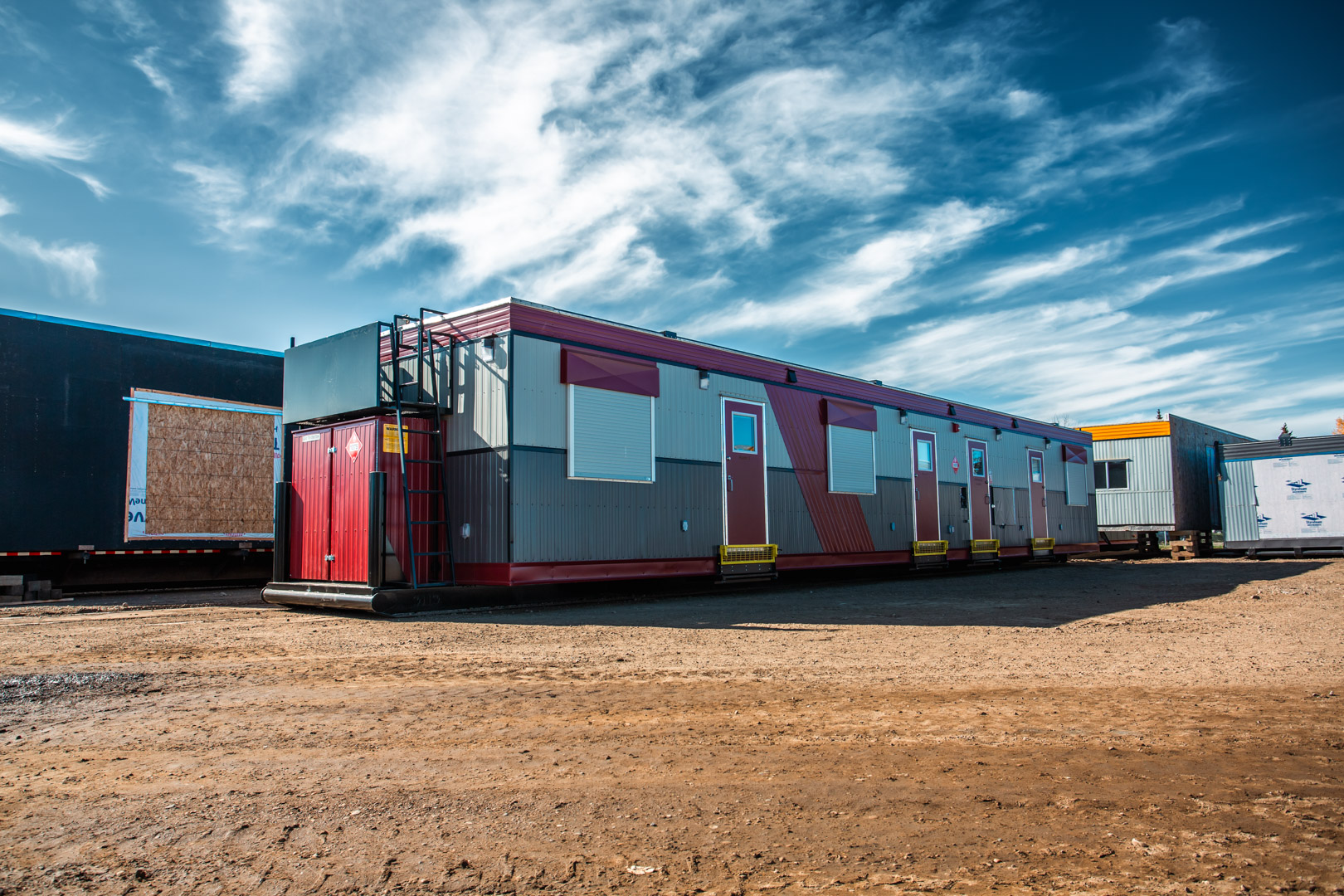Learn Remote Modular Construction
Learn Remote Modular Construction
ALTA-FAB
Remote Modular Construction
A 21st Century Solution
- October 30, 2023

In an ever-evolving world, the construction industry has seen remarkable changes. One of the most significant transformations is the emergence of remote modular accommodation construction. This innovative approach has revolutionized how we build housing and facilities in remote or challenging environments. In this article, we will delve into the process, its benefits, and its application in various industrial sectors.
The Basics of Modular Construction
Learn Remote Modular Construction
Modular construction is not a new concept, but it has gained traction in recent years due to its efficiency and versatility. In this method, structures are assembled off-site in a controlled environment, and then transported to their final location. Remote modular accommodation construction takes this a step further by focusing on building in areas where traditional construction may be impractical or costly, such as the Northwest Territories, Rocky Mountains, or Canadian Shield.
Before Modular
In times past, before the rise of modular work camps, company towns stood out as remote industry hubs. These towns, often centered on a single employer, fostered a strong sense of community. This community had a lasting impression on the history of labor and industrial settings.
The Process of Modular Building
- Design and Planning: The journey begins with careful design and planning. Architects and engineers work together to create modular units that can be efficiently transported and assembled on-site. These units are designed to be durable, functional, and adaptable to a variety of remote environments (especially to withstand northern canadian winters).
- Fabrication: Once the designs are finalized, the fabrication process begins in a controlled factory setting. This controlled environment ensures consistent quality and minimizes the impact of adverse weather conditions, allowing for winter construction. Materials are sourced, and skilled workers construct the modular units, including rooms, kitchens, bathrooms, offices, and geologist/engineering laboratories to exact specifications.
- Transportation: One of the key advantages of modular construction is that the completed units can be transported to remote sites. These units can be transported via truck.
- On-Site Assembly: Upon arrival at the remote location, the modular units are assembled like building blocks. This process is much faster and requires fewer on-site workers compared to traditional construction. The modules are precisely positioned, and connections are made to create the final structure.
- Finishing Touches: Once the main structure is in place, the finishing touches are added. This includes connecting plumbing, electrical work, and any other necessary installations. The goal is to make the accommodation fully functional and ready for occupancy.
- Quality Control: Modular construction emphasizes quality control throughout the process. Each module is inspected and tested before it leaves the factory and after assembly on-site. This ensures that the accommodation meets all safety and quality standards.
Benefits of Remote Modular Construction
- Speed: One of the most significant advantages is the speed of construction. Remote modular accommodation can be assembled in a fraction of the time it would take for traditional construction, which is crucial in time-sensitive projects.
- Cost Efficiency: The controlled factory environment and reduced on-site labor requirements often result in cost savings. Additionally, the precision of modular construction minimizes waste and rework.
- Flexibility: Modular units can be customized to suit various purposes, from single staff accommodation units to wellsite operation or even large dorm camps. This flexibility allows for tailored solutions in remote environments.
- Environmental Benefits: Modular construction generates less waste and has a smaller carbon footprint compared to traditional methods. Additionally, units can be designed with energy-efficient features.
Applications
Remote modular accommodation construction has found applications across various sectors. Some examples include:
- Mining and Resources: Remote mining sites often require accommodation for workers, dining halls, gyms, and workspace such as offices or labs. Modular units offer a quick and efficient solution to house employees in these remote locations.
- Energy and Utilities: Power plants and renewable energy projects in remote areas can use modular accommodation for staff and facilities.
- Construction Sites: In locations with limited infrastructure, modular accommodations can serve as temporary housing for construction crews, saving time and resources.
- Military and Defense: For field operations or training exercises in remote areas, modular accommodations can provide comfortable living and working spaces for military personnel.
- Disaster Relief: Modular accommodations are crucial for quickly providing shelter to displaced individuals during natural disasters or humanitarian crises.
- Remote Research Facilities: Scientific research stations in remote locations, such as the Antarctic or remote deserts, may require modular accommodations for researchers and support staff.
- Agriculture and Farming: On large, remote farms or agricultural operations, modular accommodations can house seasonal workers, reducing the need for commuting.
- Tourism and Ecotourism: In eco-friendly or remote tourist destinations, modular accommodations can offer sustainable lodging for visitors.
- Forestry and Logging: In remote forests or logging operations, modular accommodations can house workers and support staff.
- Transportation Infrastructure: For remote transportation projects, like highways or pipelines, modular accommodations can support the construction and maintenance crews.
These applications benefit from the speed of deployment, flexibility, and the ability to customize modular accommodations to specific needs. It’s a cost-effective solution for providing comfortable living and working spaces in areas where traditional construction is impractical or time-consuming.
Conclusion
Modular construction is a process, not a product. It is an alternative to traditional construction that produces custom buildings at a controlled site, which are transported and installed to remote locations. Modular buildings meet the same required codes, standards, and operational needs in traditional construction, but can do so in a faster, more economical, flexible and environmentally friendly way.
Learn Remote Modular Construction
Learn Remote Modular Construction
